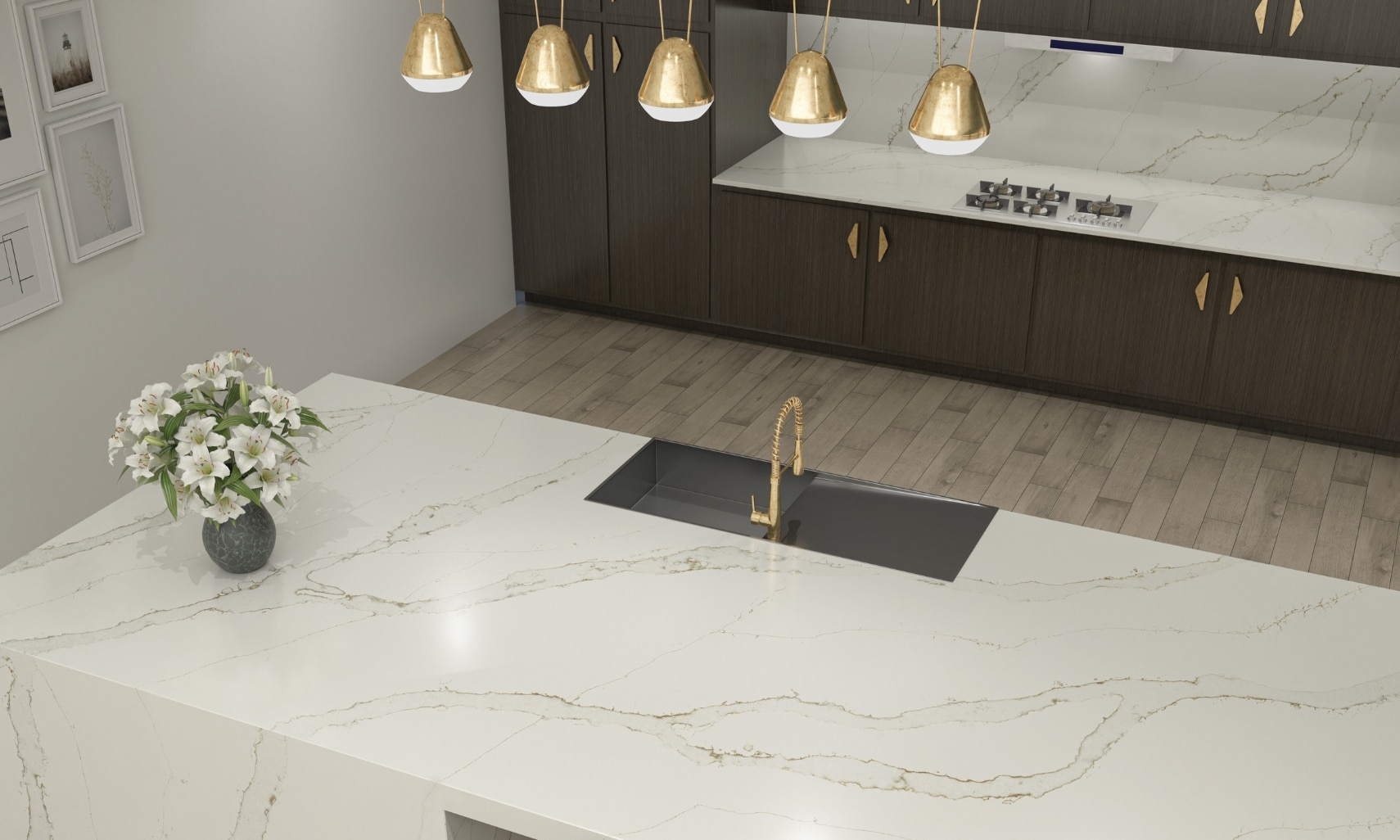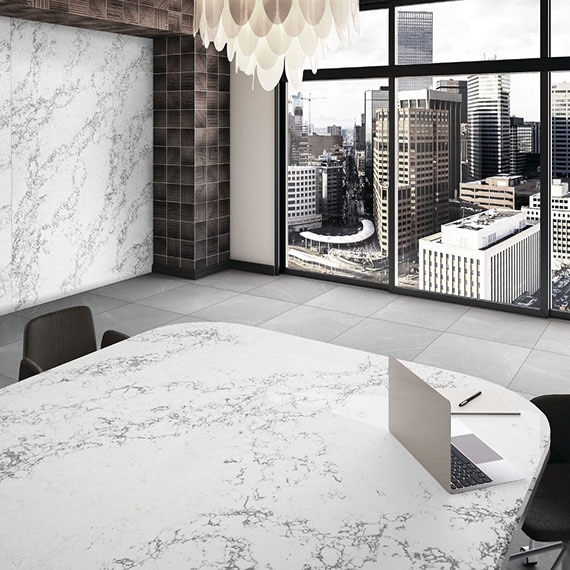Choosing Quartz
The low maintenance and durability of quartz surfaces make it perfect for many interior applications, commercial or residential. Being exceptionally beautiful yet resilient, quartz has become a favorite with interior designers and homeowners alike.

Nature & Technology
Quartz countertops are engineered stone made from natural crystals that have been crushed then infused with resin using intense heat and pressure.
Quartz countertops are engineered stone made from natural crystals that have been crushed then infused with resin using intense heat and pressure.
Maintenance-Free
Quartz countertops are non-porous so they do not need to be sealed, do not require specialized cleaners, and are resistant to stains.
Quartz countertops are non-porous so they do not need to be sealed, do not require specialized cleaners, and are resistant to stains.
Exquisite
Our ONE Quartz Surfaces® features visuals that replicate the most sought-after slab materials. From natural stone to concrete, ONE Quartz's resemblance is almost indetectable from the real thing.
Frequently Asked Questions
-
What are quartz countertops made of?
-
Where can quartz countertops be installed?
-
Do quartz countertops scratch easily?
-
Should quartz countertops be sealed?
-
How do I clean my quartz countertop?









